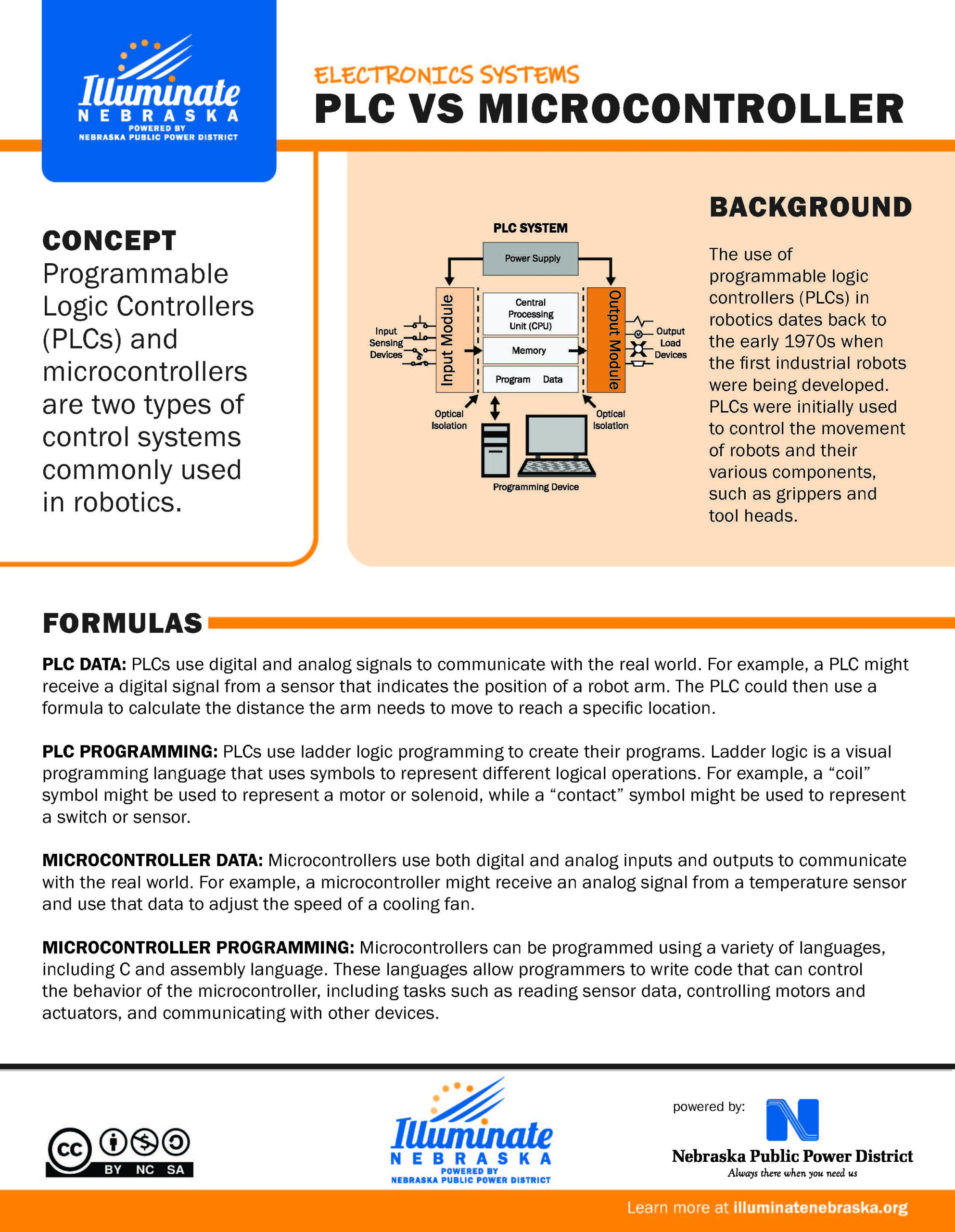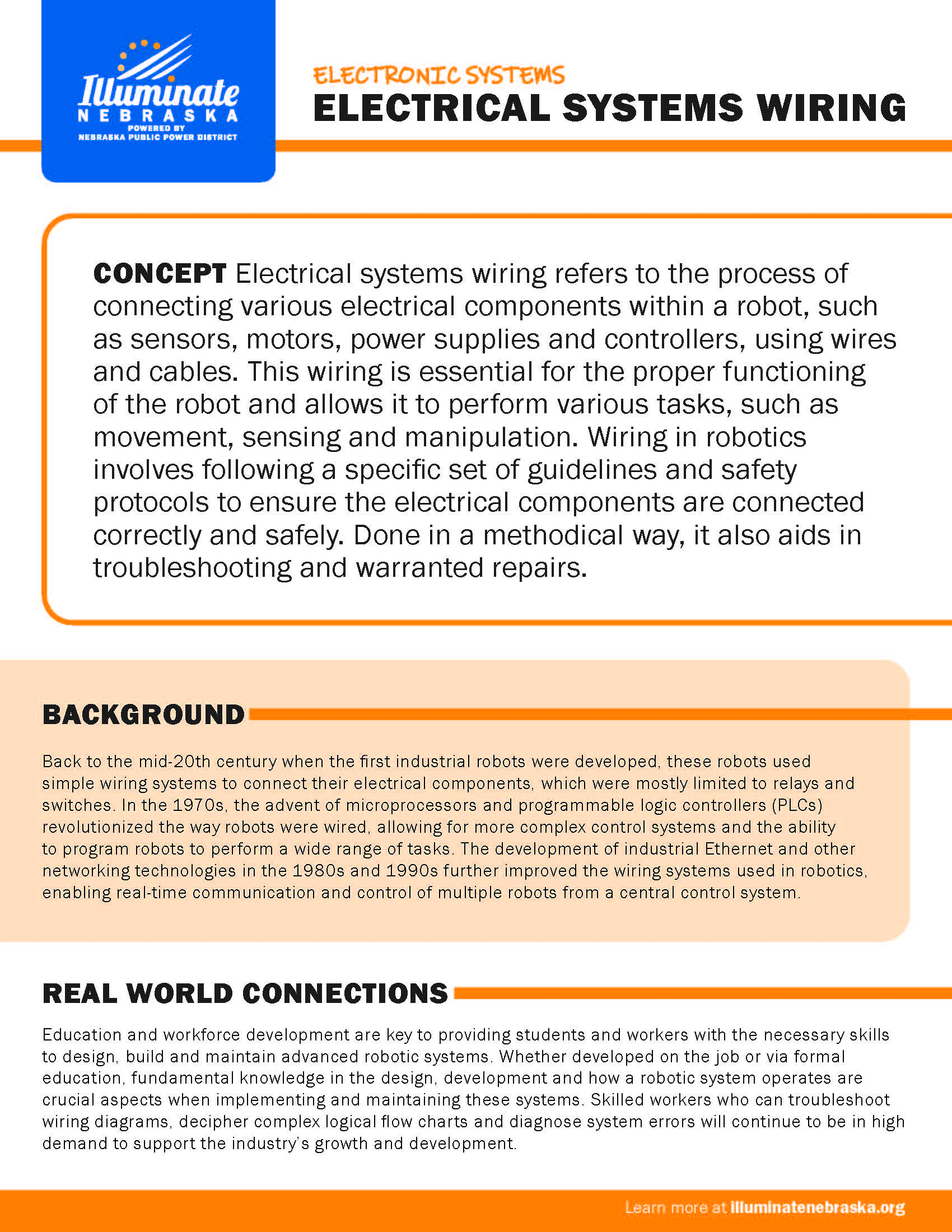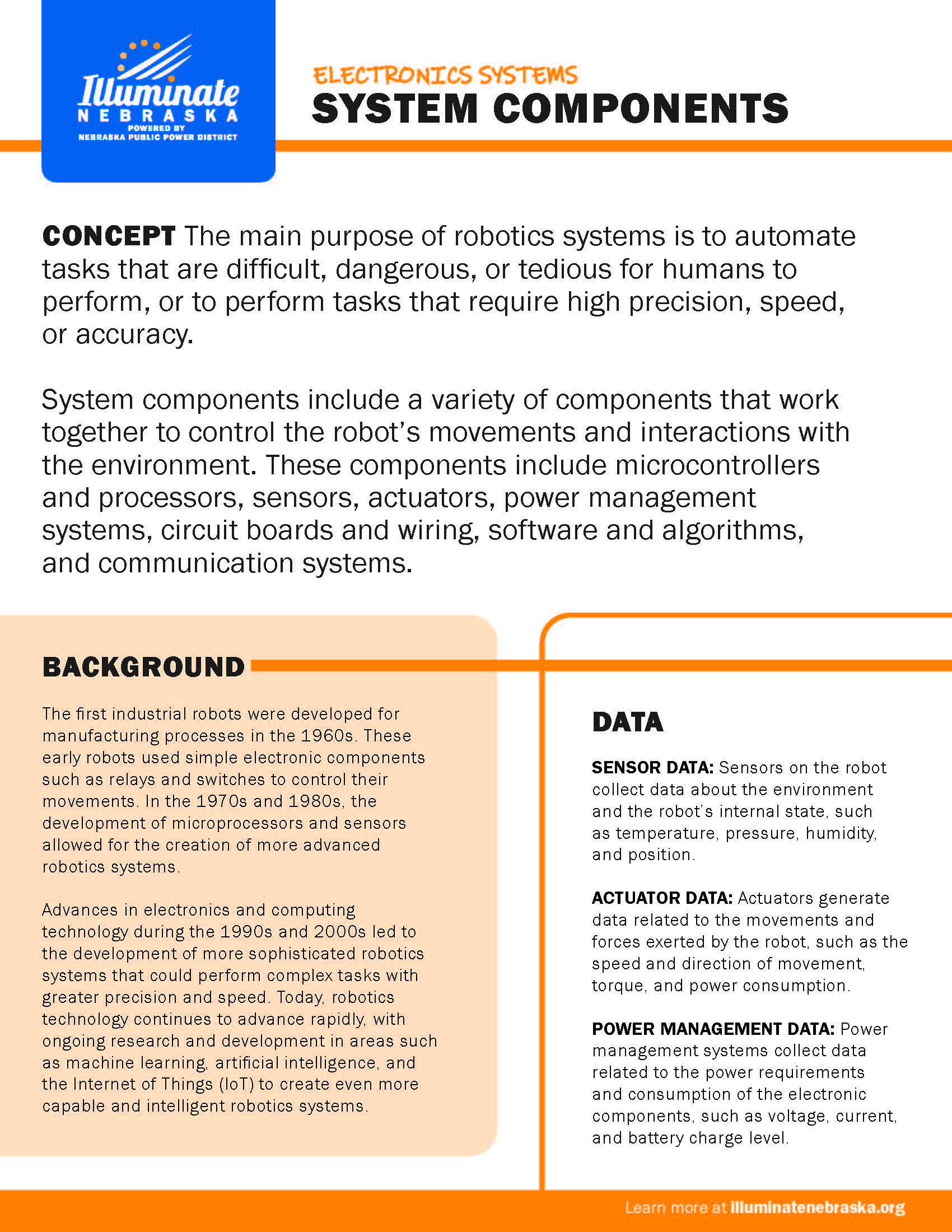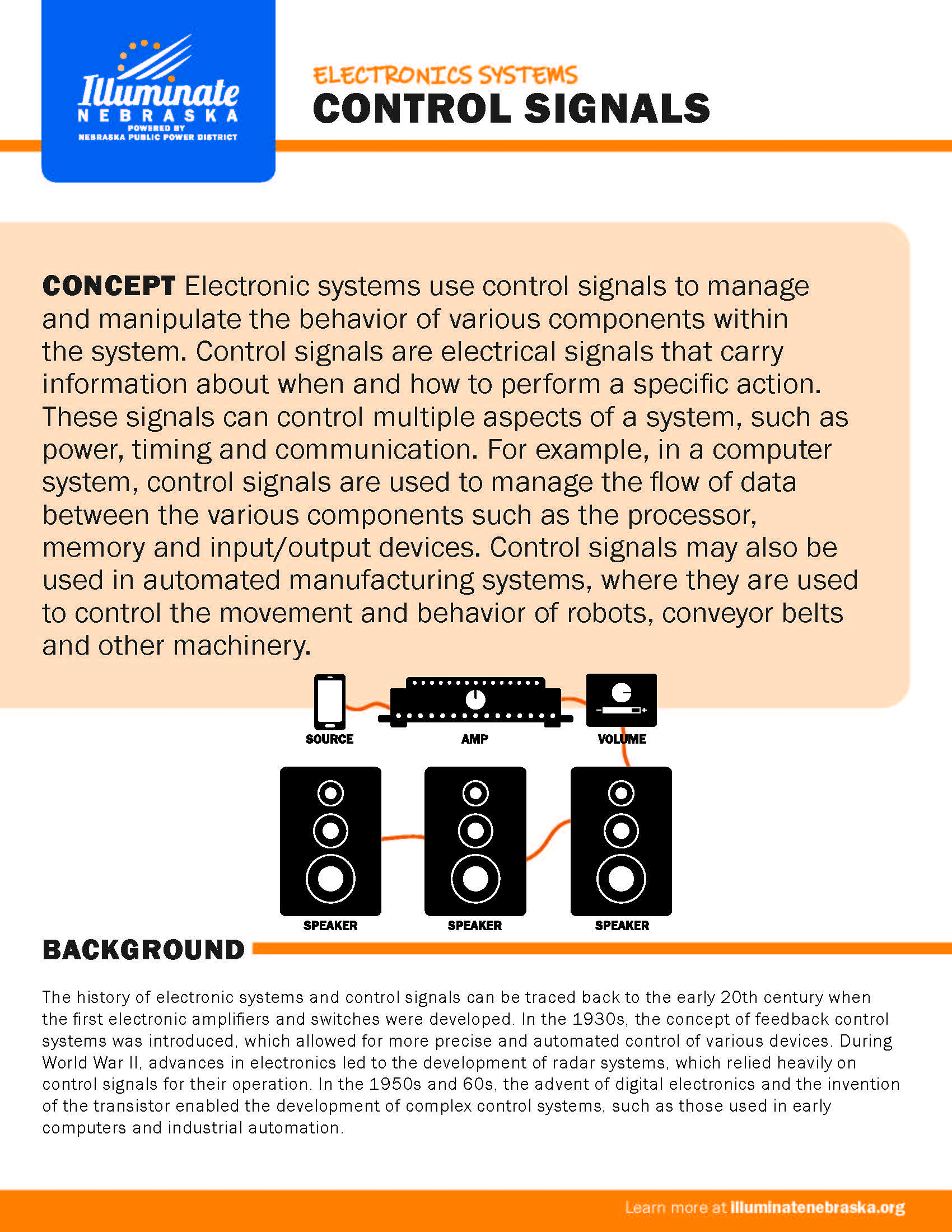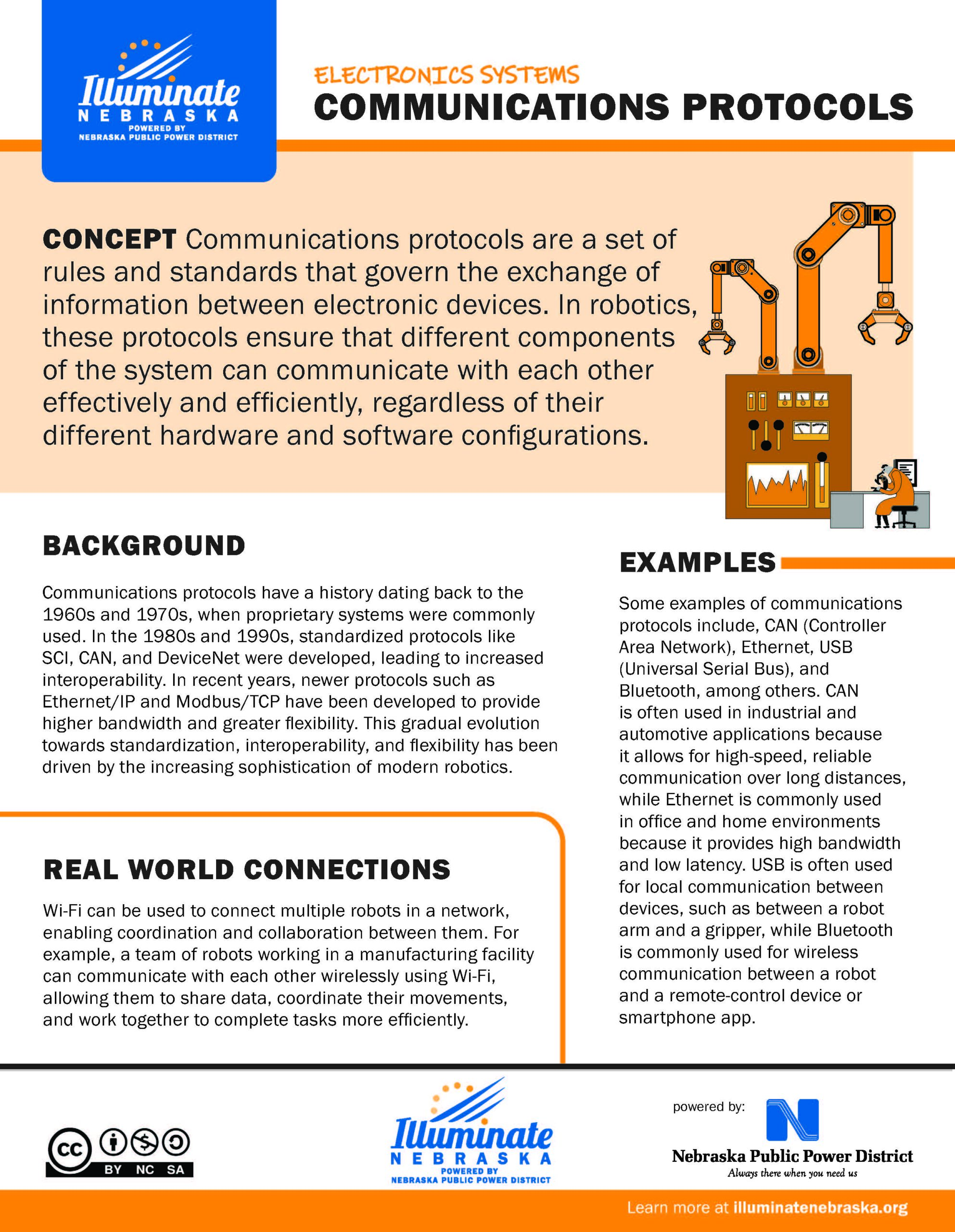PLC vs. Microcontroller
Programmable Logic Controllers (PLCs) and microcontrollers are two types of control systems commonly used in robotics.
Electrical Systems Wiring
Electrical systems wiring refers to the process of connecting various electrical components within a robot, such as sensors, motors, power supplies and controllers, using wires and cables. This wiring is essential for the proper functioning of the robot and allows it to perform various tasks, such as movement, sensing and manipulation.
System Components
The main purpose of robotics systems is to automate tasks that are difficult, dangerous, or tedious for humans to perform, or to perform tasks that require high precision, speed, or accuracy. System components include a variety of components that work together to control the robot’s movements and interactions with the environment.
Control Signals
Electronic systems use control signals to manage and manipulate the behavior of various components within the system. Control signals are electrical signals that carry information about when and how to perform a specific action. These signals can control multiple aspects of a system, such as power, timing and communication.
Communications Protocols
Communications protocols are a set of rules and standards that govern the exchange of information between electronic devices. In robotics, these protocols ensure that different components of the system can communicate with each other effectively and efficiently, regardless of their different hardware and software configurations.

